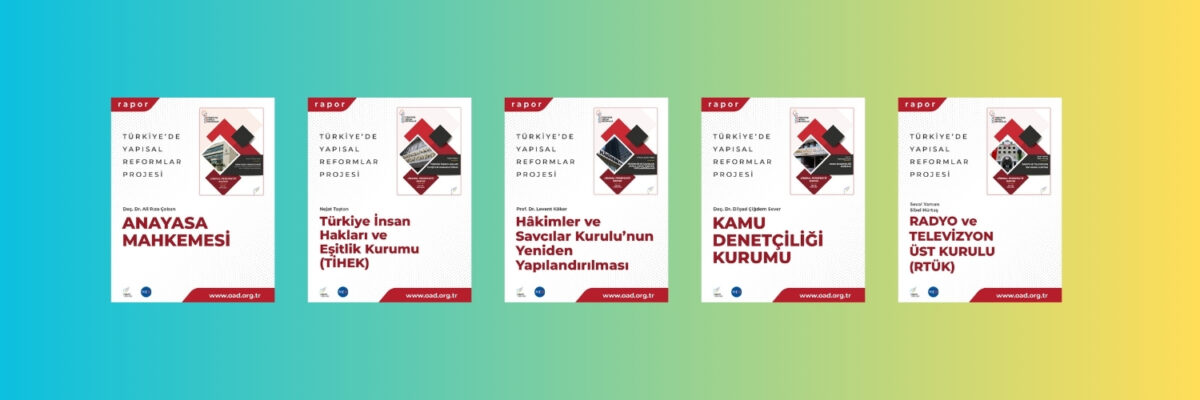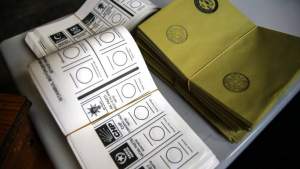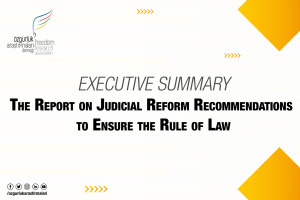At a time when political uncertainty in Turkey has deepened, the boundaries of the rule of law have narrowed, and spaces of freedom have steadily contracted, the Structural Reforms Project evolved into more than just a project over its 2023–2025 period—it became a story of institutional memory and civic resolve.
Throughout these two years, we examined institutions that are vital for the survival of democracy in Turkey. Our reports on the Constitutional Court, the Council of Judges and Prosecutors (HSK), the Ombudsman Institution (KDK), the Human Rights and Equality Institution of Turkey (TİHEK), and the Radio and Television Supreme Council (RTÜK) not only offered assessments but also provided liberal-principled recommendations on how a state structure that truly safeguards individual freedoms can be built.
Studying these institutions was not a coincidence. In recent years, as lower courts have refused to recognize Constitutional Court rulings, RTÜK has imposed record levels of fines restricting freedom of expression, the HSK has weakened rather than strengthened judicial independence, and mechanisms like the Ombudsman and TİHEK have fallen into silence, we chose to address the problem at its root. Because in any country, the future of freedom is not only shaped by political will, but also by the institutional structures that define the limits of that will.
For the Freedom Research Association, these two years marked a period when not only reports but also effective advocacy matured and generated visible impact. We met with more than twenty members of parliament from different political parties, bringing our findings directly to the legislative agenda. The parliamentary questions we drafted translated into concrete debates on legal reform, media freedom, and judicial independence. Through institutional visits at both national and international levels, we emphasized the need to strengthen democratic accountability. Meanwhile, we employed diverse tools to expand public outreach—our “10 Questions, 10 Answers” video series, social media campaigns, and public discussions made our reports not only read but also debated.
This entire process revealed a vital truth: even in the most challenging times for civil society in Turkey, it is possible to resist institutional decay with ideas. The Structural Reforms Project strengthened FRA’s position as an actor that not only critiques but also proposes solutions; not only observes but also influences.
As we entered the new phase in October 2025, we have continued this commitment. Our focus now extends beyond institutional structures to areas directly concerning individual rights—from property rights to electoral integrity, from press freedom to academic autonomy, from freedom of belief and expression to youth participation in public life. The new term focuses on protecting property rights in the post-earthquake context, preventing judicial obstruction of the right to be elected, restoring the impartiality of the Supreme Election Council, ending the manipulative role of the Press Advertising Agency, defending academic freedom in universities, and preventing the Directorate of Religious Affairs from becoming a political instrument.
This continuity reflects FRA’s core vision: to redefine the limits of the state in favor of the individual. We see reform not as a bureaucratic exercise but as a struggle to protect freedom. The Structural Reforms Project has been one of the strongest embodiments of this understanding. Each report, meeting, and recommendation has helped lay another stone in rebuilding democracy in this country.
Today, as we enter the seventh year of the project, we know that structural reform means not only changing institutions but also keeping society’s awareness of freedom alive. Rebuilding institutions around freedom in Turkey is a long-term struggle—and we will remain not just witnesses to this process, but active participants in it.





